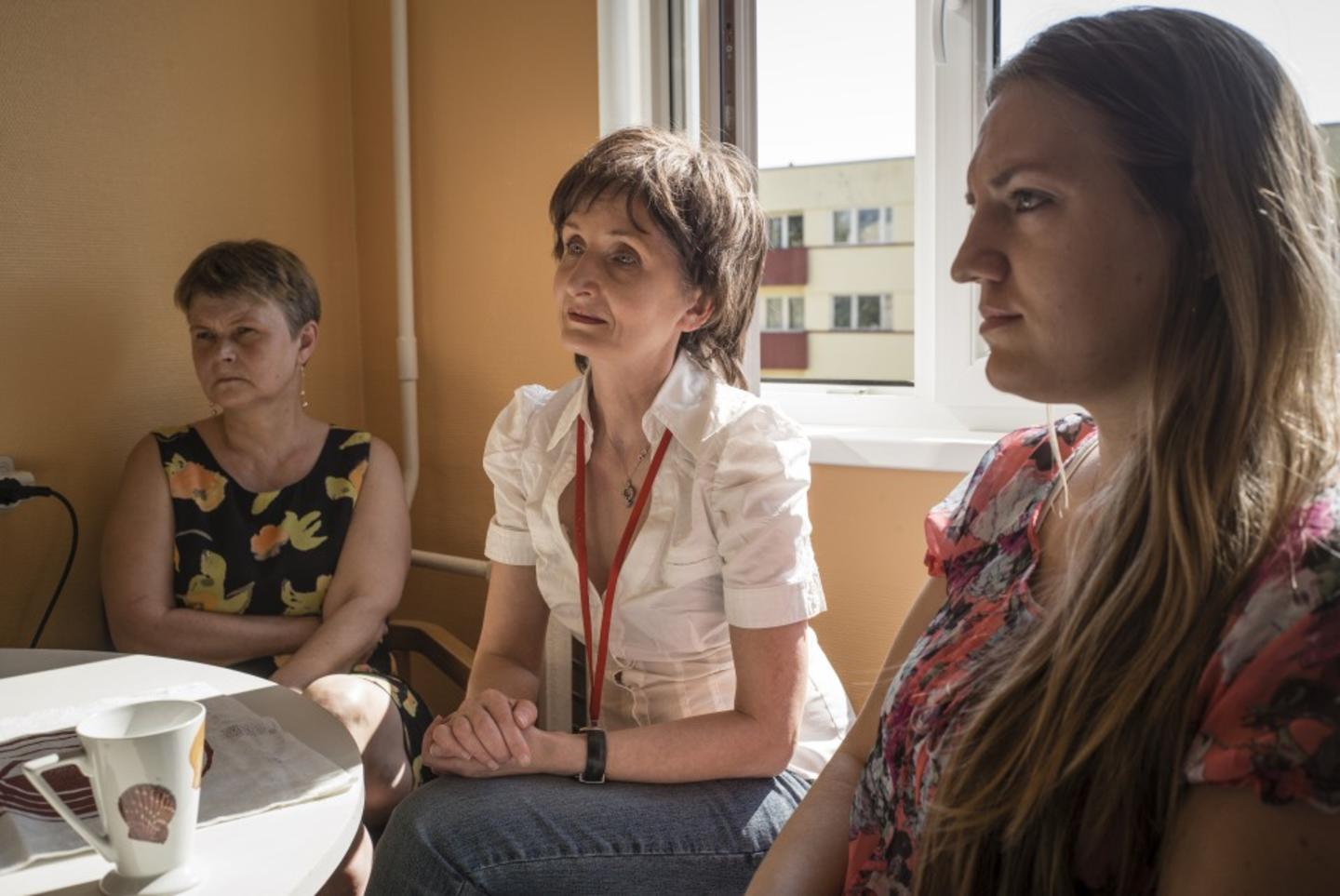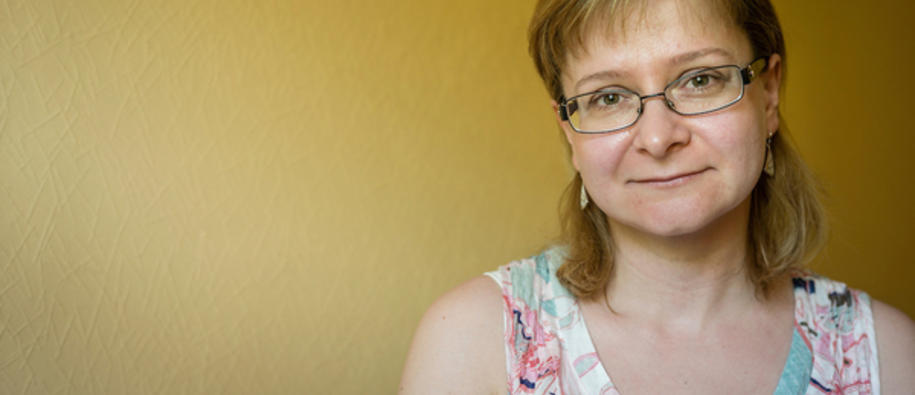Mari is not alone. According to a survey published by the EU Agency for Fundamental Rights in 2014, around one third of Estonian women had experienced physical and/or sexual violence in the course of the last 12 months. Many women in Estonia are unable to escape their violent abusers because of economic dependency and need shelter as well as psychological and legal support. Mari’s story is typical:
“My husband was violent and I did not have a place go. It started with psychological abuse four years ago. Then the last six months the violence became physical. He beat and raped me,” Mari explains.
When Mari contacted the police she was given information about the shelters supported by the Estonian Women’s Shelters Union. She is now living at a secret location where she receives counselling and legal advice.
“I have lived two months at this secret location and it is good and peaceful here. Through the therapy and legal help, I am slowly getting my life back.”
Mari has found a job at a hospital and hopes to finish her university education. She is unequivocal on where she would have been if she had not been put in contact with the Estonian Women’s Shelters Union.
“If I had not received help, I would be dead. My husband wanted to kill me.”
Providing long-term support
Eha Reitelmann, the Director for the Estonian Women’s Shelters Union, points out that although various Estonian governments have shown increasing commitment to gender issues there are still challenges. One of these challenges is the long-term funding for operating women’s shelters and hiring professional lawyers and therapists for all the shelters across the country, so that the 13 shelters supported by the Estonian Women’s Shelters Union do not have to rely on volunteers alone. This is why the project funds the hiring of 7 lawyers and 11 therapists.
“The funding from the Norway Grants is essential for us. It allows us to plan long-term and to have a systematic approach to improve the quality of our services,” Reitelmann says.
Women from different backgrounds are seeking help, and are faced with different problems. The shelter staff, lawyers and therapist work together with the victims to find a path forward adapted to their specific situation. But one common denominator is possible to identify in most abuse cases, according to Reitelmann:
“The women are usually blaming themselves, and not the abuser. We need to change this mind-set.”
Being there for the victims
In order to reach out to the women at an earlier stage, the project also funds the operation of a free countrywide telephone helpline. The helpline 1492 is operated by counsellors, who provide psychological support and easy-to-understand information about legislation and on how to access social services. Through this project, the helpline can now operate around-the-clock, instead of for only 4 hours per day. Reitelmann hopes this will encourage more women to seek help much earlier:
“We hope that more women will contact us as soon as there are signs of any kind of abuse. For many women, however, the most important thing is to know that these services exist. This gives them a sense of security and increases their self-confidence.”
The difficult way back
At the Järvamaa Women’s support centre (Järvamaa Naiste Tugikeskus), the lawyer Merle Albrant tells us about her experiences in providing legal support and representing victims in court cases. She is covering 4 different shelters. Albrant stresses the need for proper therapy for the women before taking the cases to court.
“The court procedures can be very extensive and emotionally difficult. Some women decide to withdraw the case or seek a settlement. For some it seems easier to go back, rather than start a new life. This is why I always insist that my clients have gone through therapy before the court case begins.”
Although the cases are difficult for the women, Albrant underlines that she usually wins the cases and that there are many examples of women able to move on and live a happy life:
“Of course, dealing with the trauma takes time, but there are ways out.”
Facing common challenges
The Estonian Women’s Shelters Union and the Norwegian Centre for Violence and Traumatic Stress Studies (NKVTS) are partners in the implementation of this project. NKVTS provides training packages and courses for the Estonian shelter staff.
Solveig Bergmann, Senior Researcher at NKVTS underlines that the partnership is also very useful for them:
“This kind of cooperation gives us a lot. Even though we are coming from a different starting point from a financial point of view, we are still faced with the same challenges in our work.”
About the project
Norway is providing €908 510 to this project through the Estonian domestic and gender-based violence programme.
The project started 25 March 2013 and will be finalised 31 December 2015.
Read more about the project here
Read more about the Estonian ‘Domestic and Gender-based Violence’ programme here

